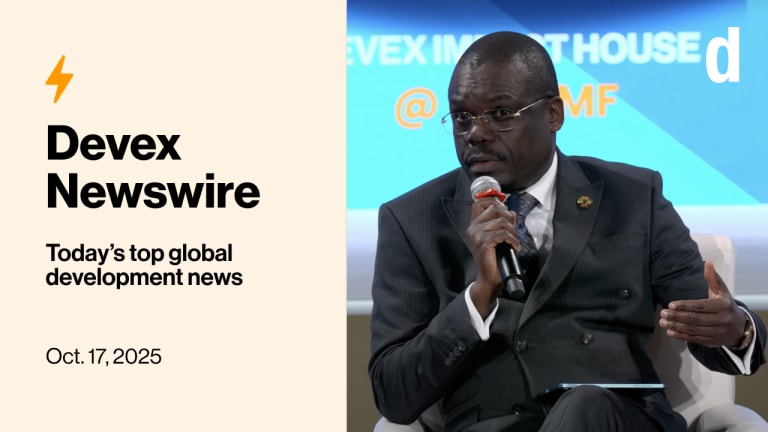Multilateralism is needed to prepare for next pandemic, experts say

Preparing for the next pandemic requires greater multilateralism, not ad hoc bilateral funding, according to experts advising the G-20 group of nations.
Sign up for Devex Invested
The weekly newsletter on how business, social enterprise, and development finance leaders are tackling global challenges.
“We should not be thinking about it as helping other countries,” said Tharman Shanmugaratnam, a senior minister in Singapore and one of the experts, in a session held on Thursday. “We should be thinking about this within the framework of global public goods.”
Amanda Glassman, an adviser who works for the Center for Global Development, said international finance institutions can have a key role in helping the world get ready for future shocks.
Multilateral development banks “should make global public goods part of their core mandate,” Glassman said. This includes focusing more on regional and global projects.
How much? While a recent report from the experts calls for countries to increase funding to at least $75 billion over the next five years to prepare for the next pandemic, details on management are thin. During the seminar, they said governments are still negotiating who will manage the funds.
Glassman stressed the $75 billion sum is a “very conservative” estimate of medium-term needs.
What else? The report says middle- and lower-income countries will also have to increase their public health spending by 1% of gross domestic product over the five-year period to be properly positioned.
What next? The priority in the short term remains getting the world vaccinated, with financing still falling short. Looking beyond the COVID-19 pandemic, the report stresses the need to swiftly set up more sustainable financial flows and good governance to ensure the funds are well spent, which may help entice countries to put up the money.

Search for articles
Most Read
- 1
- 2
- 3
- 4
- 5








